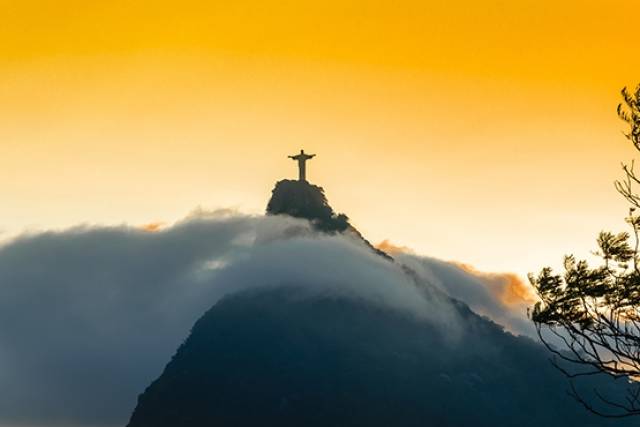The Olympic Council of Ireland (OCI) has confirmed the final Team Ireland squad that will compete at the Rio 2016 Olympic Games this summer.
This is Team Ireland’s largest delegation since 1948; 77 athletes, of whom 26 are women, will compete across 13 sports including sailing and rowing.
OCI President and IOC Executive Board Member Pat Hickey said: “We are delighted to confirm our 77-strong squad for Rio 2016, the first ever Olympic Games in South America.
“I am personally very excited about what we can achieve in Brazil; this will be the best prepared Team Ireland to ever attend an Olympic Games.
“And I know the Brazilian people, renowned for their passion, will deliver a memorable Games.
“I wish all our athletes every success and I am positive they will do the country proud.”
Team Ireland’s Chef de Mission for Rio 2016 Kevin Kilty said:
“The moment we’ve all been waiting for has finally arrived; the Team Ireland line-up for Rio 2016 is complete.
“With 77 athletes competing across 13 sports, I can honestly say Rio 2016 will be one of the most diverse and exciting Olympic Games for Team Ireland.
“Congratulations to all the athletes, coaches and performance staff for your hard work on this four-year journey. I look forward to seeing you all in Rio and wish you all the best during the next few weeks.”
See the full Team Ireland line-up for Rio 2016 below:
Athletics
Robert Heffernan - 50km and 20km men’s race walk
Brendan Boyce - 50km and 20km men’s race walk
Alex Wright - 50km and 20km men’s race walk
Lizzie Lee - women’s marathon
Fionnuala McCormack - women’s marathon and 10,000m
Breege Connolly - women’s marathon
Mick Clohisey - men’s marathon
Paul Pollock - men’s marathon
Kevin Seaward - men’s marathon
Mark English - men’s 800m
Thomas Barr - men’s 400m hurdles
Ciara Everard - women’s 800m
Ciara Mageean - women’s 1,500m
Kerry O’Flaherty - women’s 3,000m steeplechase
Michelle Finn - women’s 3,000m steeplechase
Sara Treacy - women’s 3,000m steeplechase
Tori Pena - women’s pole vault
Badminton
Scott Evans - men’s singles
Chloe Magee - women’s singles
Boxing
Michael Conlan - men’s 56kg
Paddy Barnes - men’s 49kg
Joe Ward - men’s 81kg
Stephen Donnelly - men’s 69kg
Brendan Irvine - men’s 52kg
David Oliver Joyce - men’s 60kg
Katie Taylor - women’s 60Kg
Michael O’Reilly - men’s 75kg
Cycling
Dan Martin - men’s road race
Nicholas Roche - men’s road race
Shannon McCurley - women’s keirin
Equestrian eventing, dressage and jumping
Equestrian eventing
Clare Abbott with Euro Prince
Jonty Evans with Cooley Rorke's Drift
Mark Kyle with Jemilla
Padraig McCarthy with either Simon Porloe or Bernadette Utopia
Travelling reserve: Camilla Speirs with Portersize Just A Jiff (HSI Financed)
Equestrian dressage
Judy Reynolds with Vancouver K
Equestrian jumping
Greg Broderick with MHS Going Global
Golf
Padraig Harrington - men’s golf
Seamus Power - men’s golf
Leona Maguire - women’s golf
Stephanie Meadow - women’s golf
Gymnastics
Kieran Behan - artistic gymnastics all-around
Ellis O’Reilly - artistic gymnastics all-around
Hockey
Jonny Bell
Chris Cargo
Peter Caruth
Mitch Darling
Paul Gleghorne
Kyle Good
Ronan Gormley
David Harte (captain)
Conor Harte
John Jackson
John Jermyn
Eugene Magee
Shane O’Donoghue
Alan Sothern
Kirk Shimmins
Michael Watt
Reserves
Tim Cockram
Michael Robson
David Fitzgerald
Modern pentathlon
Arthur Lanigan-O’Keeffe
Natalya Coyle
Rowing
Sinead Lynch - women’s lightweight double sculls
Claire Lambe - women’s lightweight double sculls
Paul O’Donovan - men’s lightweight double sculls
Gary O’Donovan - men’s lightweight double sculls
Sanita Puspure - women’s single sculls
Sailing
Annalise Murphy - Laser Radial
Finn Lynch - Laser
Ryan Seaton - 49er
Matt McGovern - 49er
Andrea Brewster - 49erFX
Saskia Tidey - 49erFX
Swimming and diving
Fiona Doyle - women’s 100m and 200m breaststroke
Oliver Dingley - men’s 3m springboard diving
Nicholas Quinn - men’s 100m and 200m breaststroke
Shane Ryan - men’s 100m backstroke; 50m and 100m freestyle
Triathlon
Aileen Reid - women’s triathlon
Bryan Keane - men’s triathlon































































